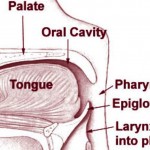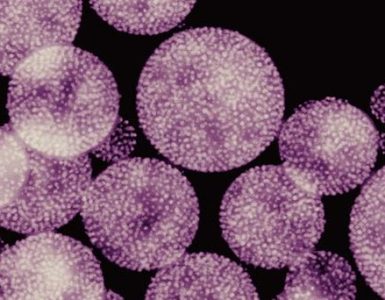 The human papillomavirus, which was known to cause many cases of cervical cancer, is now strongly associated with throat cancers. Luckily, evidence shows that vaccines could prevent the cancers from developing.
The human papillomavirus, which was known to cause many cases of cervical cancer, is now strongly associated with throat cancers. Luckily, evidence shows that vaccines could prevent the cancers from developing.
Michael Douglas may have been onto something when he said his throat cancer was caused by human papillomavirus (HPV) contracted through oral sex. Even though Douglas later retracted his statement, two new studies not only support this claim, but also show that the HPV vaccine could prevent throat cancer.
HPV is the most common sexually-transmitted infection (STI). It’s passed on through genital contact, most often during vaginal and anal sex, but can also be transmitted through oral sex as well. While many HPV infections resolve without treatment within two years, a small percentage of infections can cause more severe health problems, including recurrent respiratory papillomatosis (RRP), a condition in which warts grow in the throat, and a head and neck cancer called oropharyngeal cancer, which develops in the back of the throat, at the base of the tongue, and on the tonsils.
HPV and throat cancer
For the first of the studies, researchers looked at the most common types of cancer-causing HPV strains, HPV-16 and HPV-18, and their link with oropharnygeal cancer. Researchers followed study participants who were initially tested for the antibody E6, which indicates the presence of HPV. All patients were free of the antibody, and therefore free of HPV. AntibodyE6 destroys the protective properties of cells, allowing HPV’s cancer-causing properties to take effect, the BBC reported.
More than 10 years later, 135 people developed throat cancer and 1,599 people were cancer free. The researchers found that 35 percent of those with throat cancer had E6 antibodies in their system, compared to less than one percent of those who didn’t have cancer.
“These striking results provide some evidence that HPV-16 infection may be a significant cause of oropharyngeal cancer,” said Dr. Ruth Travis, a Cancer Research UK scientist at Oxford University and co-author of the study.
Dr. Sarah Hiom, Cancer Research UK’s director of health information added that “if the HPV vaccine can also protect against oral HPV infections and cancers, then it could have a broader potential protective effect, but we don’t have enough research yet to tell us.”
HPV and oral infections
Another study, published July 17 in the journal PLOS One, found evidence suggesting that the HPV vaccine does protect people from developing HPV-related oral infection, according to HealthDay News.
The study looked into the four-year effects of the HPV vaccine, Cervarix, on 5,840 women compared to a control group of 1,626 women didn’t receive a vaccine. They found that the vaccine prevented 93 percent of throat infections. Among the women who received the vaccine, only one developed an oral HPV infection, compared to 15 of the women who were part of the control group.
“The study is really preliminary information,” said Dr. Elizabeth Poynor, a gynecological oncologist and pelvic surgeon at Lenox Hill Hospital, in New York City. “It will provide a basis to begin to study how the vaccine will help protect against throat cancer.”
“It’s going to take a while to study those who have been vaccinated to determine that they are protected against throat cancer. This is just the beginning,” she added.
The study highlights the need to vaccinate young boys as well, which has been met with some resistance among parents, Poyner said. A recent study showed that boys whose mothers received preventative care more often — in the form of flu shots and pap smears — were more likely to receive HPV vaccines as well.
Source: Medical Daily

















